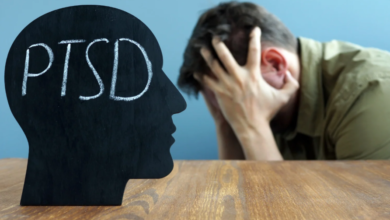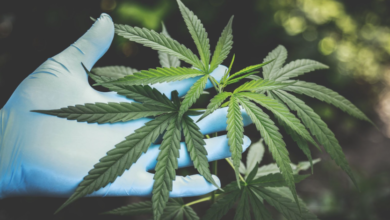Does CBD Cause Psychosis?

The relationship between cannabidiol (CBD) and psychosis remains a contentious topic in the field of mental health. Although CBD is often lauded for its non-psychoactive properties and potential therapeutic applications, emerging research indicates that its effects on psychotic symptoms may be influenced by dosage and individual variability. As the conversation surrounding CBD's safety and efficacy evolves, it is crucial to explore how it interacts with various mental health conditions, particularly in vulnerable populations. What implications might these findings have for future therapeutic practices?
Understanding Psychosis
Psychosis is a complex neuropsychiatric condition characterized by a disconnection from reality, often manifesting through hallucinations, delusions, and impaired cognitive functioning.
Key psychosis symptoms include auditory and visual hallucinations, distorted beliefs, and cognitive disruptions.
Various psychosis triggers, such as substance abuse, extreme stress, or underlying mental health disorders, can exacerbate these symptoms, necessitating a thorough understanding for effective intervention and treatment strategies.
CBD and Mental Health
Cannabidiol (CBD), a non-psychoactive compound derived from the Cannabis sativa plant, has garnered attention for its potential therapeutic effects on various mental health conditions, including anxiety, depression, and post-traumatic stress disorder (PTSD).
Despite emerging CBD benefits, misconceptions persist regarding its efficacy and safety.
Further exploration is necessary to differentiate between anecdotal claims and scientifically supported outcomes in mental health treatment.
Research Findings
Recent studies have begun to investigate the relationship between CBD and the onset of psychotic symptoms, revealing a complex interplay that necessitates further scrutiny of both the compound's therapeutic potential and its safety profile.
Evidence suggests that CBD interactions with various neurotransmitter systems and varying dosage effects may influence psychotic symptomatology, underscoring the need for careful evaluation in clinical applications.
Safe CBD Use Guidelines
Understanding the complexities of CBD's interaction with psychotic symptoms highlights the importance of establishing safe use guidelines to mitigate potential risks while harnessing its therapeutic benefits.
Adhering to dosage recommendations is crucial, as excessive intake may exacerbate symptoms.
Additionally, careful product sourcing ensures the quality and purity of CBD, thereby reducing the likelihood of adverse effects and promoting a safer user experience.
Conclusion
In conclusion, the relationship between CBD and psychosis remains complex and nuanced.
Research indicates that while CBD may possess therapeutic potential for certain mental health conditions, its effects can vary significantly among individuals.
A notable statistic reveals that approximately 20% of individuals with psychotic disorders report experiencing symptom relief with CBD, underscoring the need for careful consideration of dosage and individual response.
Establishing comprehensive safety guidelines is essential to mitigate potential adverse effects, particularly in vulnerable populations.




